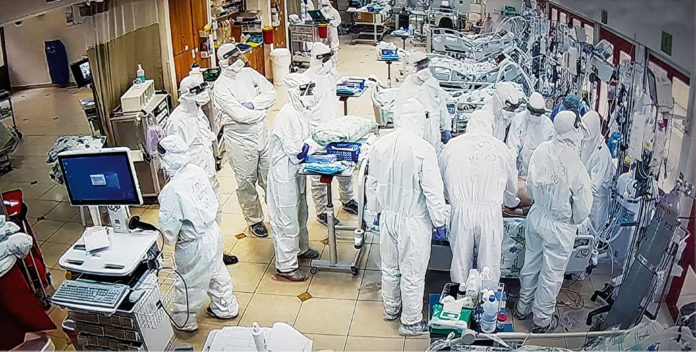If you’ve ever been to Laniado Hospital and wondered why there are strange-looking curtainless shower stalls right near the entrance, the answer is that they are intended for use by victims of chemical warfare, chas v’shalom, to wash the toxins off their bodies. In fact, most hospitals in Israel must have contingency plans in case of an atomic (A), biological (B) or chemical (C) disaster.
Practice Makes Perfect
While one might say that the motto of Laniado’s Department of Disaster Management echoes that of the Boy Scouts, “Be prepared,” a more apropos maxim during the recent COVID pandemic would be the verse in Koheles “Let your garments always be white” (9:8). This, of course, is a reference to the white personal protection “spacesuits” worn by the hospital’s staff.
“Over the years,” Lydia tells me, “we have periodically conducted practice sessions where mass casualty events are simulated.” She shows me photos of a drill back in 2017, in which mannequins and IDF soldiers were “stricken,” their symptoms listed on a cardboard chart around their necks. The doctors and nurses were graded on how well they performed triage, treated patients and managed the flow of the wounded. Laniado, which received an excellent score from the Health Ministry and civil defense authorities, passed with flying colors.
Conducting these practice drills every few years keeps the staff on its toes and ready to cope with a real-life disaster. Therefore, when news of the outbreak of a novel disease started to trickle in this past February, Lydia and her staff went into high gear, checking their protocols and collecting information. Shortly before the epidemic hit full force, a humongous tent was pitched in the hospital’s parking lot, stacked from floor to ceiling with thousands of boxes of supplies. The magnitude of the preparations suggested an impending war, and it was very frightening. Like most people, I wasn’t thinking about a pandemic at the time. But long before the first COVID patient arrived at Laniado, Lydia was taking care of the logistics.





















